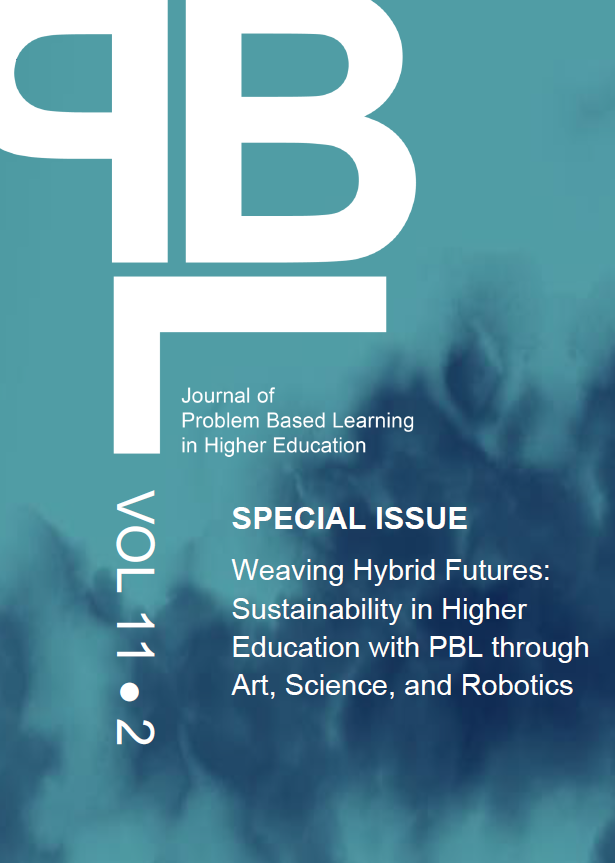Abstract
Sustainability is currently one of the most important topics in higher education and curriculum development. As a connected and interdependent global community, we are facing increasingly complex and multidimensional socio-political, economic, and environmental challenges. It is clear that trans-disciplinary efforts are necessary to tackle sustainability. Integrating sustainability in educational curricula involves cultivating a way of thinking that is holistic and collaborative so that we can adequately prepare students to work across disciplines, sectors, institutions, and geographies. Problem-based learning, a student-centered learning approach that focuses on real-life problems and where students typically work in groups (Servant-Miklos et al., (2023)), was shown to be a good method for teaching students to engage with complex topics such as sustainability. Defining sustainability is a double act of communication across disciplines and planning for and imagining the future, which requires creativity and, at times, speculation. This act is made more difficult by the fact that there is a lack of consensus surrounding sustainability and through what means and metrics sustainability should be assessed (Horsbøl, 2023; Smith, 2019). How can we use often conflicting conceptions to imagine and design sustainable futures? How can transdisciplinarity inform education and equip future students with a sustainability mindset to face the challenges of their time? These are the core research questions that inform this special issue on Weaving Hybrid Futures: Sustainability in Higher Education with PBL Through Art, Science, and Robotics.
References
Eskjær, M. F., & Horsbøl, A. (2023). New Environmental Controversies: Towards a Typology of Green Conflicts. Sustainability (Switzerland), 15(3), [1914]. https://doi.org/10.3390/su15031914
Horsbøl, A. (2023). Discourse and the Environment: Complexity, Conflicts, and Crises. Zeitschrift für Diskursforschung, 10(2), 288-295.
Horvath, A-S., Jochum, E., Löchtefeld, M., Vissonova, K., & Merritt, T. R. (2023). Soft Robotics Workshops: Supporting Experiential Learning About Design, Movement, and Sustainability. In B. J. Dunstan, J. T. K. V. Koh, D. Turnbull Tillman, & S. A. Brown (Eds.), Cultural Robotics: Social Robots and Their Emergent Cultural Ecologies (pp. 189-218). Springer. Springer Series on Cultural Computing. https://doi.org/10.1007/978-3-031-28138-9_13
Smith, T. S. J. (2019). Sustainability, Well-being and the Posthuman Turn. Palgrave Pilot. https://link.springer.com/book/10.1007/978-3-319-94078-6
Servant-Miklos G., Du X., Holgaard J. E., Stegeager N. (2023). Strength in Diversity: Future-proofing PBL Research and Practice (Editorial). Journal of Problem Based Learning in Higher Education, 11(1), I-VI. https://doi.org/10.54337/ojs.jpblhe.v11i1.7803
Articles published in Journal of Problem Based Learning in Higher Education are following the license Creative Commons Attribution 4.0 (CC-BY)
Authors retain copyright and grant the journal right of first publication with the work simultaneously licensed under a Creative Commons Attribution 4.0 International License (CC-BY). Further information about Creative Commons
